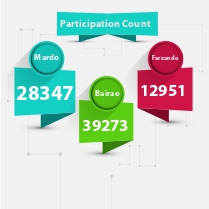Over the past two years, there has been a significant increase in terms of Tilawat al-Quran al-Kareem (Quran Recitation). As per divine guidance from Syedna Aali Qadr Mufaddal Saifuddin TUS, Mumineen are connecting with this movement and enlightening their souls in the revered month of Ramadan. The month of Ramadan can be regarded as the source of divine inspiration to get engrossed in the ibadat of Allah. Owing to the reverence of this month Allah Ta’ala selected it to reveal Quran.
Reflecting on the Ayat karima (Quranic verse),

we find that the Quran isn’t just text descended on Rasulullah SWA but a source of healing for all physical, mental, and spiritual health and well-being as shown in the story of Yaqub Nabi SA in Surat e-Yusuf.
To support this discussion, we can draw the examples from Quran itself.
When Yaqub Nabi SA lost his vision by continuously shedding tears upon the loss of his son Nabi Allah Yusuf AS, he selected only Allah to complain about his grief by imploring in front of Allah by saying;

What an excellent remedy given by the Quran to face the world in a period of personal grief and loss.
The world is full of noise, from constant phone notifications to loud car honking. And the inner loss of peace is beyond explanation. But reciting the Quran can help us find peace amidst this chaos, which is often hard to find in today’s busy world.
What is the month of Ramadan all about?
The month of Ramadan is about finding inner peace by abstaining from worldly distractions. Fasting nourishes the soul, and reciting the Quran enriches it further. One style of reciting the Quran is “Daur al-Quran al-Kareem”, or Group Recitation, which is an exemplary innovation introduced by the revered figure Syedi Abdul Qadir Hakimuddin RA. In this practice, a group gathers with an approx. count minimum of eight or more members, and each person recites upon his turn (the number of participants varies). The group is guided by a knowledgeable leader in recitation. As each member recites, others listen attentively, and the group leader corrects any mistakes if necessary.
What are the many benefits of this recitation?
Fixing a dedicated time for group recitation: This ensures that all participants commit to scheduled sessions, creating consistency and making recitation a central part of their daily routines.
In group recitation, individuals recite aloud: This promotes attentive and mindful recitation, minimizing errors and allowing group members to support each other in rectifying mistakes. It’s a traditional practice observed in Cairo, renowned for Quranic recitation. Recting aloud in front of all helps to build confidence.
Group recitation assists in adhering to a balanced level of recitation: When individuals are motivated, they recite more and when the motivation fades they recite less or miss to recite. Group recitation prevents overexertion often seen in individual recitation, ensuring participants maintain a sustainable proportion of recitation.
Mistakes made by one member serve as learning opportunities for the entire group: The group leader plays a crucial role in identifying and correcting errors, and fostering a collaborative learning environment.
Group recitation is inclusive and flexible: It accommodates individuals of diverse ages and backgrounds, encouraging a sense of community and allowing everyone to engage in this spiritually enriching practice.
Participants benefit from a deeper understanding of Quranic verses: Brief explanations provided during group recitation enhance comprehension and appreciation of the Quran’s meanings.
Group recitation inspires participants to improve their skills: Individuals who excel motivate others to strive for fluency and accuracy, creating a supportive learning environment.
Regular participation facilitates Quran completion: By committing to attend daur sessions, participants move closer to achieving the noble goal of completing the Quran at least once in the month of Ramadan, as encouraged by Syedna Aali Qadr Mufaddal Saifuddin TUS.
Encouraging others: Recognise that each person has their level of recitation proficiency. It’s important to respect these differences, creating an environment where individuals can recite without fear and improve at their own pace. Encouraging and supporting each other cultivates a positive atmosphere for growth in Quranic recitation.
The participation count of Mumineen in the current month of Ramadan till now is:

In conclusion, Daur al-Quran al-Kareem is an excellent practice for mastering Quranic recitation. May Allah grant our Aqa Maula Syedna Aali Qadr Mufaddal Saifuddin TUS a healthy and prosperous life till the day of Qiyamat. Ameen
